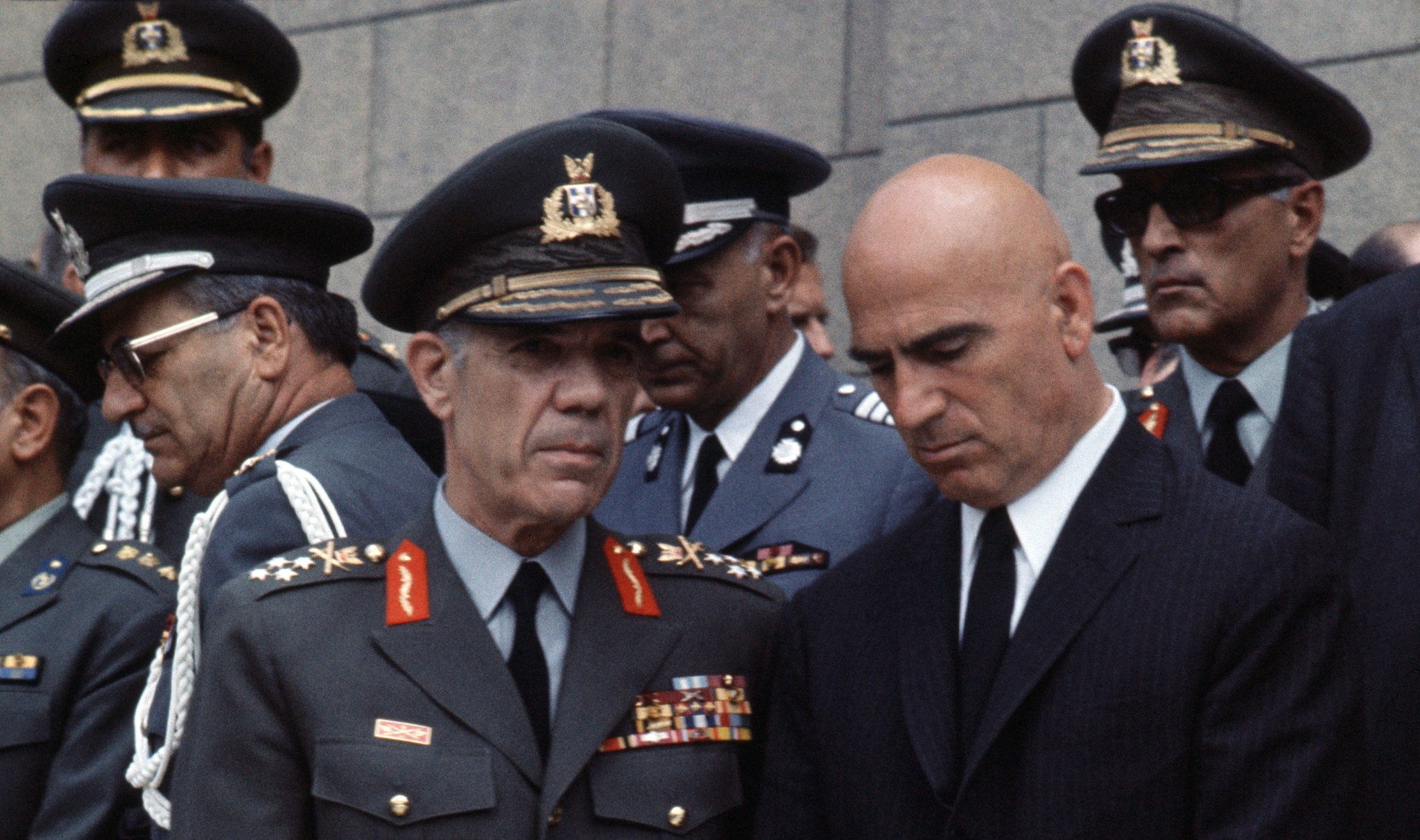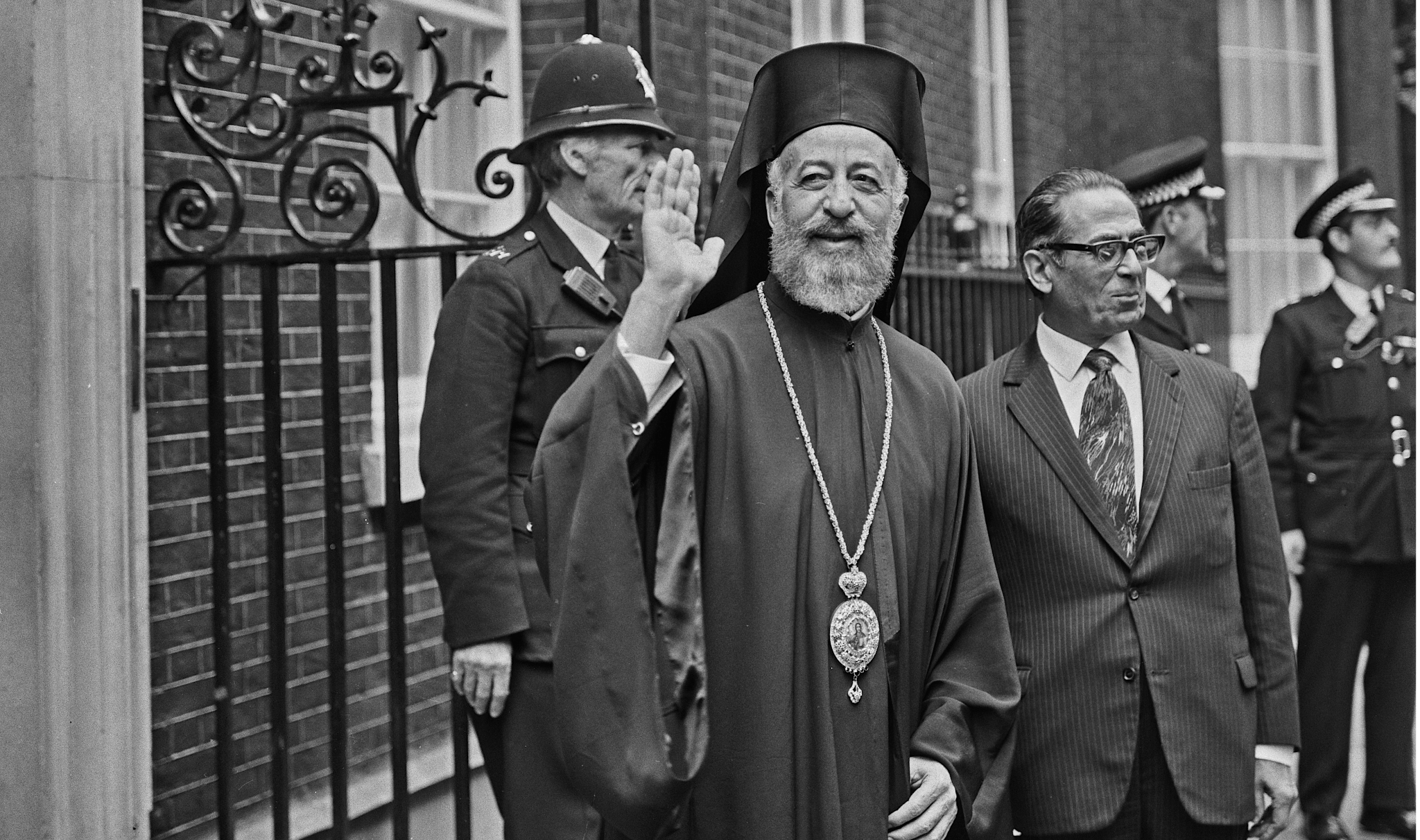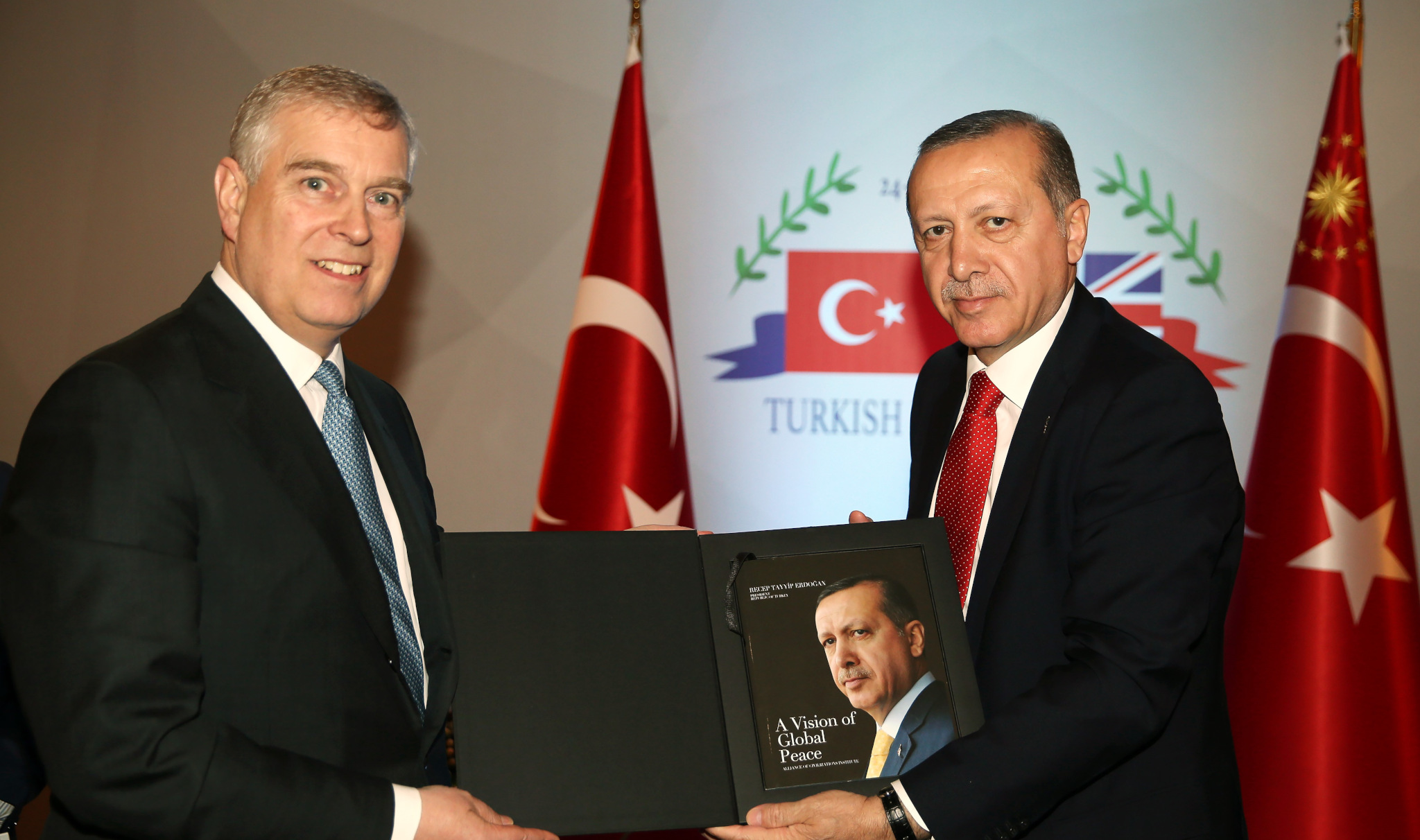On 21 April 1967, a group of mid-ranking army officers took control of Greece in a coup – placing tanks in the streets of Athens and securing the acquiescence of Constantine, the country’s 26-year-old king.
The colonels’ junta quickly curtailed many basic freedoms in the name of saving Greece from communism. It suspended parliament and much of the constitution, restricted public gatherings and censored the press.
It imprisoned mainstream politicians and thousands of alleged leftists. And it imposed numerous petty bans – prohibiting miniskirts for girls, long hair for boys and various cultural works.
In Britain, this created a dilemma for Harold Wilson’s Labour government.
Amid widespread media criticism and public disapproval of the coup, there was considerable pressure on ministers to condemn the regime – but also pragmatic arguments for working with it.
How did the British government respond to the military takeover of a fellow member of NATO?
NATO ally
In the geopolitics of the cold war, Greece was seen as a crucial ally on NATO’s south-eastern flank, close to several communist or Soviet-sympathising countries.
In addition, Britain was anxious to retain influence amid Greek-Turkish tensions in its former colony Cyprus, where it had (and retains) two military bases. And it had commercial interests in Greece.
In a memo to his foreign secretary George Brown on 28 April, Wilson noted Greece’s significance as “a NATO ally and a fairly key spot in the Mediterranean, to say nothing of its involvement in the Cyprus problem”.
Believing the regime appeared “precarious”, Wilson suggested that NATO countries might consider how to “strengthen the resistance of the King” and encourage conservative politicians not to cooperate.
But Brown was against “political meddling”, saying the junta had both “full military backing” and “popular acquiescence”. He argued that the “best hope lies in seeking to modify the regime by cautious and measured co-operation, both from the King and from respectable politicians”.
By exerting “the right pressures”, he wrote, the colonels might be encouraged “back to fully constitutional government within the foreseeable future”.
Doing business
At a meeting on 3 May with Sir Ralph Murray, the British ambassador to Greece, Brown sought advice on whether to “take the coup calmly and carry on business as usual or to act very disturbed by what had happened and show our displeasure”, the minutes record.
Murray responded that “it would be right to do business with the regime and try to push them into a suitable political evolution”.
The ambassador explained: “We had commercial interests in Greece. We had the NATO interest – and the colonels were ardent NATOists – and we had humanitarian problems [such as securing the release of British prisoners].”
“It would be right to do business with the regime”
Murray added that “we could use the strength of feeling in this country about the coup as a way of pushing them in the right direction” – with Brown adding that this could be combined with “a certain aloofness”.
On 17 May, a paper circulated to the Cabinet by Brown set out two policy objectives: “to be able to do business with [the junta] to protect British interests”, and “to influence it towards a return to parliamentary and democratic procedures and a restoration of civil liberties”.
While publicly condemning the colonels “would have fitted the sense of shock and repugnance we felt and still feel”, wrote Brown, “it would have left us with no direct means of speaking our minds to the new leaders”.
The government repeatedly made similar arguments when defending its policy from its many critics within the public, parliament and the media. And it continued its policy of working with the junta after Constantine fled to exile in December 1967, following an unsuccessful attempted counter-coup.
Commercial projects
Within Whitehall, officials were keen to take forward commercial opportunities in Greece that had existed well before the coup. These included a possible “large order of British rail cars” to the Greek state railways from the company Metro-Cammell, with Britain potentially contributing £1m in aid.
A brief to chancellor James Callaghan in May said that the “Treasury interest” on this issue and other matters was “to enter into working relations with the new regime”. An accompanying note reiterated that the question of “whether we deal with the new regime…is from our point of view fairly clear”.
Another project was the possible sale of a British nuclear reactor worth about £32m (more than £740m in today’s prices). The UK’s Atomic Energy Authority (AEA) had been discussing this with Greece since early 1965, though other countries were also in contention.
About a month after the coup, on 18 May, AEA chair Sir Charles Cunningham wrote to the Foreign Office that “our basic aim remains, of course, to secure a nuclear order in Greece,” adding that the body was “anxious to maintain and improve the limited advantage which we have secured”.
However, in the following months the junta became wary after the collapse of proposals for a wider development project in Greece, which might have included the reactor.
A Foreign Office official wrote on 27 October: “The Greek authorities purport to believe that [the difficulty obtaining finance] was motivated by political considerations, i.e. HMG’s disapproval of the present Greek regime.” This had led it to “refuse to have dealings with at least one British firm”.
The next month, Sir Michael Stewart – who succeeded Murray as ambassador in July – reported following a meeting that “a solid residue of suspicion persists” in the minds of at least two of the junta’s three leaders.
Despite this, in December 1967 an AEA delegation visited Greece for five days in December 1967, making a presentation to key ministers and officials. A letter to the Foreign Office from an embassy official said this was down to “protracted advocacy”, adding that “it is now important to keep up the momentum”.
‘Bestialities’
Meanwhile, evidence was mounting of the junta’s human rights violations. In January 1968 Amnesty International said more than 2,700 prisoners were still being detained without trial in Greece, and that the use of torture was “widespread” against citizens suspected of opposition.
In April that year, a Foreign Office minister acknowledged “strong prima facie evidence of…inhuman treatment”. When Wilson referred to “bestialities” perpetrated by the dictatorship in parliament on 25 June, this crossed a line for the junta.
Two days later, the Greek ambassador, Panagiotis Verykios, visited the UK foreign secretary, who was now the MP Michael Stewart, who replaced George Brown in March 1968 – and coincidentally had the same name as the British ambassador.
“Evidence was mounting of the junta’s human rights violations”
Verykios warned that Wilson’s comments “would have unfavourable repercussions on our relations at a time when the Greek Government were considering the award of a contract for a nuclear power station”.
This message was reinforced in a telegram from Ambassador Stewart to the Foreign Office on 1 July. The embassy had heard from the local Metro-Cammell agent that while the junta had been poised to approve the contract for carriages, it now “had no choice but to call off all business now under negotiation with Britain”.
Following this, the foreign secretary sought advice from Ambassador Stewart on how to “minimise damage to our commercial interests”. Reviewing draft speaking notes intended for use in parliament, Sir Michael recommended that “the least that can be said and the milder the language used the better”.
He wondered “whether it would be possible to use the expression ‘harsh’ treatment or ‘maltreatment’ instead of ‘inhuman’ treatment…and to avoid the use of the word torture”.
Less reliable ally
At around the same time, on 2 July, the foreign secretary set out a “recently reviewed” Greece policy.
This reiterated that “private representations” were preferable to public criticism in influencing the junta towards democracy – and said these better supported Britain’s other key aims of maintaining influence over Cyprus, pursuing British commercial interests, and preserving Greece’s effectiveness to NATO.
Before the junta fell in 1974, there would be two changes of British government and numerous other relevant developments. But the UK’s broad policy approach remained consistent.
A significant factor behind this was concern that the regime could be replaced by a less reliable ally, whether from the left or the more extreme right. Before the coup, Greece had seen years of political upheaval.
The resignation of its then prime minister, George Papandreou, in 1965 precipitated a major crisis, followed by various short-lived administrations. Elections were due in May 1967, with Papandreou’s Centre Union party expected to make gains.
The party was moderate overall – but it included George’s son Andreas, whose more left-wing politics and alleged association with communists prompted concern in London.
Right-wing coup
In this context, a right-wing coup had widely been seen as a possibility. And for many Greek conservatives and Western governments, this outcome was arguably preferable to a liberal victory.
A briefing note for Wilson in November 1966 noted speculation in Athens about “some kind of ‘extra-parliamentary solution’”, which, it added, “would not necessarily conflict with [British] interests”.
“A right-wing coup had widely been seen as a possibility”
In contrast, in January 1967 ambassador Ralph Murray had judged that a government dominated by Andreas Papandreou’s faction “would be seriously disturbing to us” in terms of NATO relations.
According to a telegram from Britain’s ambassador to West Germany on 2 May, in the weeks following the coup a senior German official had opined that “if we did not want to have a Papandreou government it was impossible to have a real democracy in Greece”.
While rarely stated so starkly, a comparable pragmatism would guide the policy of Britain and many of its NATO allies over the next seven years.





